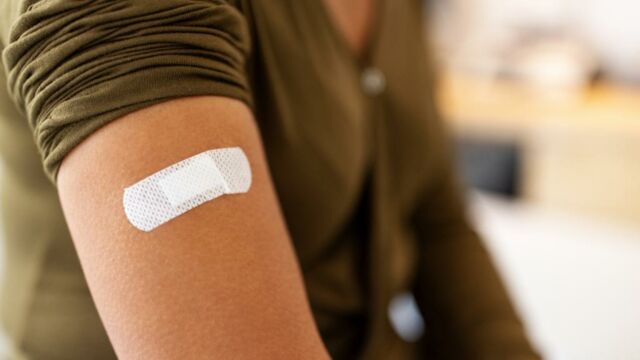As the world begins to reopen after a long period of pandemic-induced lockdown, many people are eager to get back to their normal lives. However, with the resurgence of Covid-19 cases in many parts of the world, it is important to get vaccinated against the virus. The good news is that there are now vaccines available that can provide protection against the virus. However, as with any vaccine, there are some potential side effects that you should be aware of.
Discover our latest podcast
After all, who wants to put something in their body that might make them feel worse? The good news is that these side effects are very rare. In fact, according to CDC, most people don't experience any side effects at all when they get a Covid-19 booster shot! Even if you do feel some mild symptoms after getting your shot, they shouldn't last long. With that said, let's take a look at some of the common Covid-19 booster side effects and how to ease them.
Soreness at the injection site
This is pretty normal with every vaccine. You may feel a little soreness at the injection site which should go away within a day or two as your body gets used to receiving a Covid-19 booster.
If you notice that your injection sites are getting redder, swollen, or more painful than usual, apply a cold pack to them for 20 minutes each hour until they feel better. If these side effects worsen, talk with your doctor right away.
Tiredness and achiness
A common Covid-19 booster side effect is fatigue and muscle aches. While you're waiting for the shot to wear off, try resting as much as possible and drinking plenty of fluids to help with hydration. You can also ask your doctor if you should take a painkiller such as ibuprofen or acetaminophen before getting your booster shot.
Headache

A headache is another common side effect of Covid-19 booster shots according to NHS Inform, so you're not alone if your head's been pounding since you got that shot. If you do get a headache, take an over-the-counter pain reliever. If the headache doesn't go away after taking it for several days, see a doctor right away—you may need help with treating your headache.
Low-grade fever
An elevated temperature is a sign that your body is fighting an infection, and this may be caused by bacteria or a virus. A fever can also be a side effect of Covid-19 booster shots. While a low-grade fever (less than 101°F or 38°C) usually doesn't need treatment, you should contact your doctor if your fever is higher and does not go away.
Nausea, vomiting, diarrhoea and abdominal pain
While nausea, vomiting and diarrhoea are all common side effects of the Covid-19 booster shot, they're also easy to manage. Avoid fatty foods like fried chicken or pizza as much as possible. Finally—and most importantly—drink plenty of fluids throughout the day to stay hydrated!
If these symptoms persist for more than 24 hours or get worse after 48 hours, contact your doctor right away!
All in all, symptoms of a Covid-19 booster aren't too bad and usually go away after a couple of days, so just relax and enjoy your vacation/family reunion/quinceanera/whatever you were doing before getting your booster shot!
Disclaimer: The contents of this article: text, graphics, images, and other materials contained, are strictly for informational purposes only. The content is not intended to be used as a substitute for professional medical diagnosis, advice, or treatment. Please always seek the advice of a qualified health provider with all the questions that you have related to, or about, a medical condition.
Sources used:
CDC: Possible Side Effects After Getting a COVID-19 Vaccine
NHSInform: Side effects of the coronavirus vaccines
Read more:
⋙ Covid-19: Should you get the seasonal booster this autumn?
⋙ A new COVID variant has emerged, should we be worried?
⋙ Covid-19: Experts warn of new symptom as 'devastating' wave hits Britain















